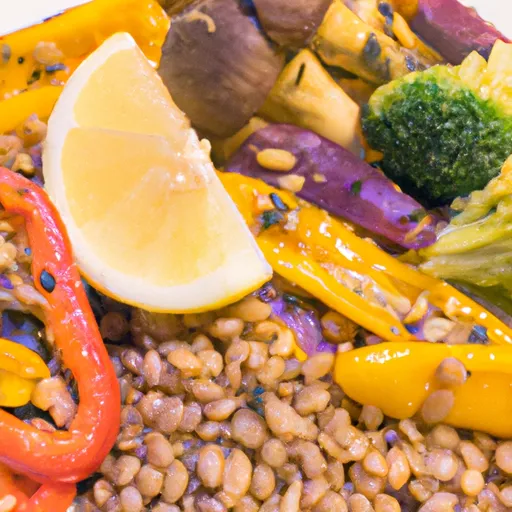How to Stay Healthy with a Balanced Vegetarian Diet
Switching to a vegetarian diet can have numerous health benefits, but it’s crucial to ensure that you are eating a balanced diet to stay healthy. By incorporating a variety of fruits, vegetables, whole grains, legumes, nuts, and seeds, you can get all the essential nutrients your body needs. Here are some tips on how to stay healthy with a balanced vegetarian diet.
Include a Variety of Foods
One of the keys to a balanced vegetarian diet is to include a variety of foods in your meals. Make sure to eat a rainbow of fruits and vegetables to get a wide range of vitamins and minerals. Include whole grains like quinoa, brown rice, and oats for fiber and energy. Incorporate legumes such as beans, lentils, and chickpeas for protein and iron. Snack on nuts and seeds for healthy fats and antioxidants.
Get Enough Protein
Read also: Avoid These Exercise Mistakes: A Beginner’s Guide
Protein is an essential nutrient that is often a concern for vegetarians. Make sure to include a variety of protein sources in your diet, such as tofu, tempeh, seitan, legumes, nuts, and seeds. Quinoa and amaranth are also excellent sources of complete protein. Including protein-rich foods in every meal can help you meet your daily protein needs.
Don’t Forget about Vitamin B12
Vitamin B12 is essential for nerve function and the production of red blood cells. Since vitamin B12 is primarily found in animal products, vegetarians may need to supplement or include fortified foods in their diet. Look for fortified plant-based milk, breakfast cereals, and nutritional yeast to ensure you are getting enough vitamin B12.
Monitor Your Iron Intake
Read also: Achieve Optimal Health with Balanced Diet & Active Lifestyle
Iron is another nutrient that vegetarians need to pay attention to, as plant-based sources of iron are not as easily absorbed by the body as animal sources. To increase iron absorption, pair iron-rich foods with vitamin C-rich foods, such as citrus fruits, berries, and bell peppers. Include iron-rich foods like lentils, chickpeas, spinach, and pumpkin seeds in your diet to prevent iron deficiency.
Stay Hydrated
Drinking enough water is essential for overall health, regardless of your diet. Aim to drink at least eight glasses of water a day to stay hydrated and help your body function properly. Herbal teas, coconut water, and infused water can also help you stay hydrated and add variety to your beverages.
By following these tips and making sure you are getting a variety of nutrients in your diet, you can stay healthy with a balanced vegetarian diet. Remember to listen to your body and make adjustments as needed to ensure you are meeting your nutritional needs.
Questions and answers
What are some key components of a balanced vegetarian diet?
A balanced vegetarian diet should include a variety of fruits, vegetables, whole grains, legumes, nuts, and seeds to ensure you are getting all the essential nutrients your body needs. It’s important to focus on getting enough protein, iron, calcium, vitamin B12, and omega-3 fatty acids from plant-based sources.
How can I make sure I am getting enough protein on a vegetarian diet?
There are plenty of plant-based sources of protein such as beans, lentils, tofu, tempeh, quinoa, nuts, and seeds. By incorporating a variety of these protein-rich foods into your meals, you can easily meet your daily protein needs. It’s also important to combine different protein sources throughout the day to ensure you are getting all the essential amino acids.
What are some tips for staying healthy on a balanced vegetarian diet?
Some tips for staying healthy on a balanced vegetarian diet include eating a variety of colorful fruits and vegetables, choosing whole grains over refined grains, incorporating plant-based sources of protein into each meal, staying hydrated, and avoiding processed and sugary foods. It’s also important to listen to your body and make adjustments to your diet as needed.
How can I ensure I am getting enough iron on a vegetarian diet?
Iron is found in plant-based sources such as lentils, beans, tofu, spinach, quinoa, and fortified cereals. To enhance iron absorption, pair iron-rich foods with vitamin C-rich foods like citrus fruits, tomatoes, and bell peppers. You can also cook with cast iron cookware to increase the iron content of your meals.

